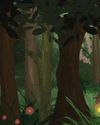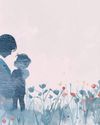
GCK: William, you have already mentioned BB3 - balcony, bridge, and third side. Is that your advice to bring more peace within ourselves and in our relationship with others? Is BB3 the magic formula? Do you have any advice you could give us?
Well, first of all, in the last forty-five years since I started Getting to Yes, the biggest lesson I have learned is that to influence others we first need to learn how to influence ourselves. We keep thinking that we want to change the minds of others, but it starts right here. The single biggest obstacle for me in my personal life, or for me to get what I need to satisfy my interests, is not the difficult person on the other side of the table. It's not the difficult person in life, as difficult as that person might be. It's right here. The most difficult person is the person we look at in the mirror every single morning, and that's a lot of what going to the balcony is about.
There is a saying, "When you are angry, you'll make the best speech you ever regret," and I think that's very true. Human beings naturally get frustrated and angry, and say things that they later regret. That happens a lot in conflict. Gandhi noticed this and he said, "An eye for an eye will leave the whole world blind." So, learn the ability not to react. Neuroscientists tell us it takes about ninety seconds for any emotion like anger or fear to go through your system. Learn to pause, a little bit of silence.
There is an interesting study done by one of my colleagues on negotiation, where they studied different groups: and measured the number of pauses in the conversation. That was it. There was a direct correlation between the number of pauses, how collaborative the process was, and how successful the outcome was.
So just slow down. We live in a very fast world. We need to pause. We need to go to the balcony. We need to take some time for ourselves.
This story is from the {{IssueName}} edition of {{MagazineName}}.
Start your 7-day Magzter GOLD free trial to access thousands of curated premium stories, and 9,000+ magazines and newspapers.
Already a subscriber ? Sign In
This story is from the {{IssueName}} edition of {{MagazineName}}.
Start your 7-day Magzter GOLD free trial to access thousands of curated premium stories, and 9,000+ magazines and newspapers.
Already a subscriber? Sign In

A Flower from THE HEAVENS
November 14 is Children's Day. This year, SARA BUBBER brings to you a world of forests, magical flowers, festivals, and some animals you may have never seen.

Meeting Phenomenal Women
The author, CHITRA BANERJEE DIVAKARUNI, is interviewed here by TARA KHANDELWAL and MICHELLE D'COSTA about her books on mythology, like The Palace of Illusions, which is a retelling of the Mahabharata from Draupadi's point of view, and The Forest of Enchantments, which is a retelling of the Ramayana, from the eyes of Sita. And there's The Last Queen, which is about Rani Jindan's life.

HERBAL TOOTH POWDERS: Rediscovering Ayurveda's Natural Secrets
SRAVAN BANDA presents a natural herbal tooth powder, offering a holistic approach to oral hygiene, harnessing the power of medicinal herbs.

The Dance of Light and Shadow Lessons from the Dolomites
ALAIN DESVIGNE explores the Dolomites, listed as a UNESCO World Heritage Site in 2009.

FINDING OUR WAY
A Polynesian Explorer's Journey of Discovery

The First Imprint: Understanding PTSD
CHRISTIANNA DEICHMANN is the Director of Education at the Association for Pre and Perinatal Psychology and Health (APPPAH), where she educates both professionals and parents on fostering the most nurturing environments for welcoming new life into the world.

The Tipping Point
In this final conversation of the series, J. FREDERICK ARMENT continues to talk with CHRISTINE JONES about promoting peace in the world.

UNLOCK YOUR POTENTIAL
Take The Brighter Minds Path To Cognitive Development

The Intrinsic Goodness of the Heart
DAAJI shares some thoughts on heartfelt acceptance and all it has to offer. He says, \"It is the heart's intrinsic goodness that allows us to accept everything as part of us.

How Does Fear Affect Our Roles as Mothers? - Neelam Shivhare explores some of the great ancient texts of India on motherhood, compares the behavior of Kaikayi and Yashoda
Neelam Shivhare explores some of the great ancient texts of India on motherhood, compares the behavior of Kaikayi and Yashoda, and realizes the importance of removing fear from our hearts in order to nurture our children.For young women like myself, who are future mothers, I trust we are on the path of becoming selfaware and brutally honest with ourselves. We are creative beings, never forgetting the gifts with which we have been bestowed— the love and tenderness, natural instincts, and intuition to feel the right path. It all lies in the mysterious meanderings of the heart. Are we really listening to our hearts, or confusing the bombarding information on social media with reality?